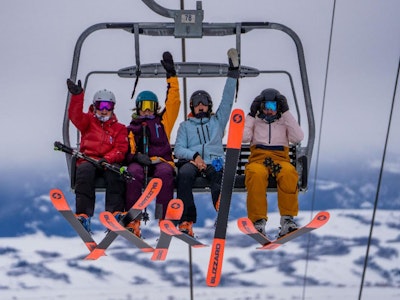WORDS — Erme Catino
PHOTOS — Frederick Marmsater
A small bean grown in India. A most unlikely ingredient in a most unlikely place. Yet, Scarpa’s Green Manifesto brings us to the heart of Asia, the home of the castor bean—the newest material brands are utilizing in the quest to make ski gear manufacturing eco-friendly.
Over the past several years, backcountry gear sales have been growing at an exponential rate and, at the top end of those sales, have been alpine touring boots. The increased popularity has allowed brands to develop better gear, seemingly every season. However, much of that engineering has been focused on building lighter, burlier or more progressive-flex ski boots and less to do with material science. That may soon be changing with the launch of Scarpa’s plant-based Maestrale and Gea family of boots, AT boots that equally match the performance of their predecessors while eliminating the global harm that has been inevitable in outdoor gear production.
This year, Scarpa is launching its Green Manifesto in addition to its latest iteration of the Maestrale and Gea family of ski boots—which are using new shell materials derived from castor oil. Taking the industry’s most popular and best-selling AT boot, Scarpa is now producing it from 65-percent renewable sources, eliminating 32 percent of the carbon dioxide that previously went into manufacturing them.
“For me… partnering with brands that lead in sustainable values is more important than any other financial commitment or the product itself,” notes Scarpa athlete and freeskiing icon Chris Davenport.
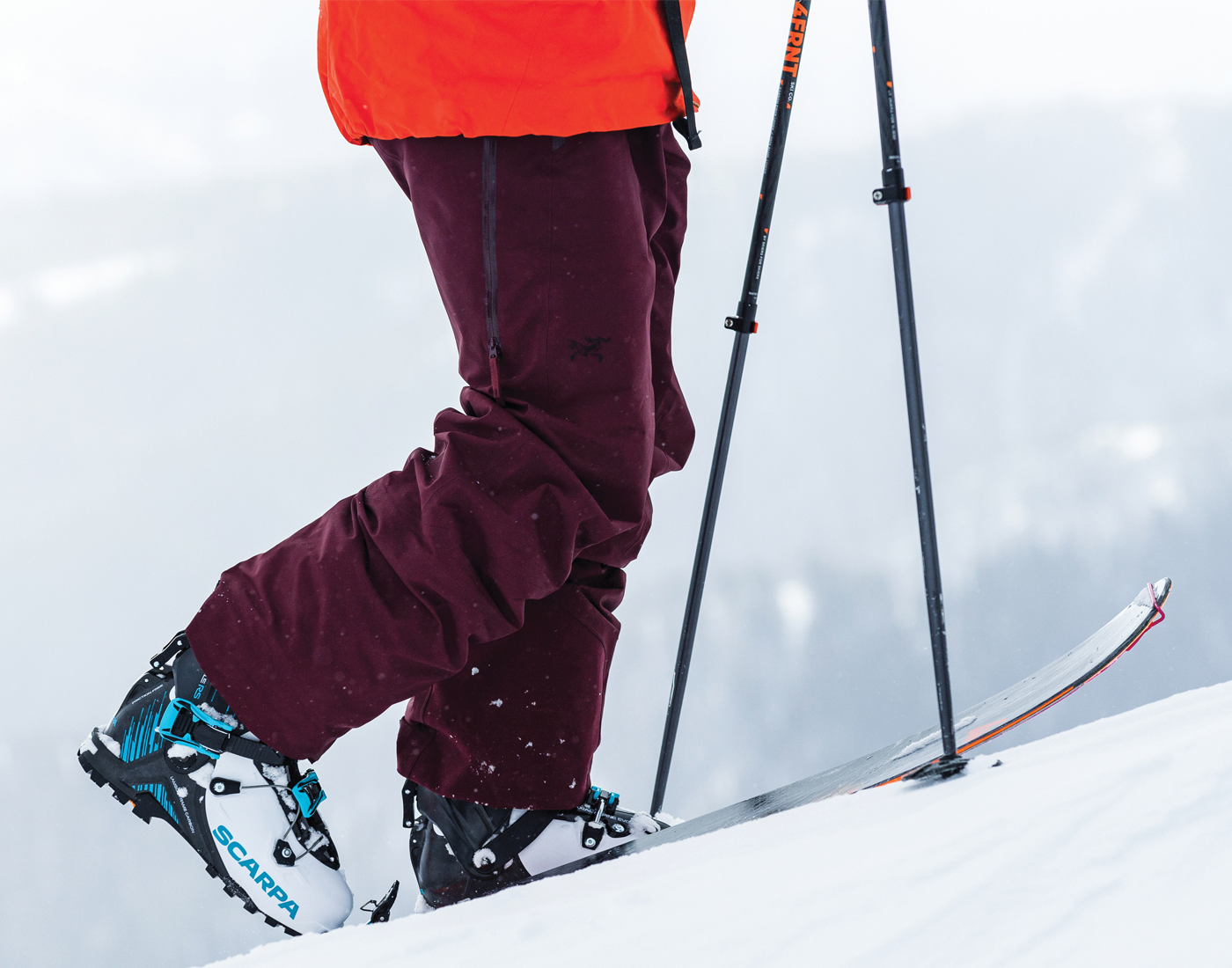
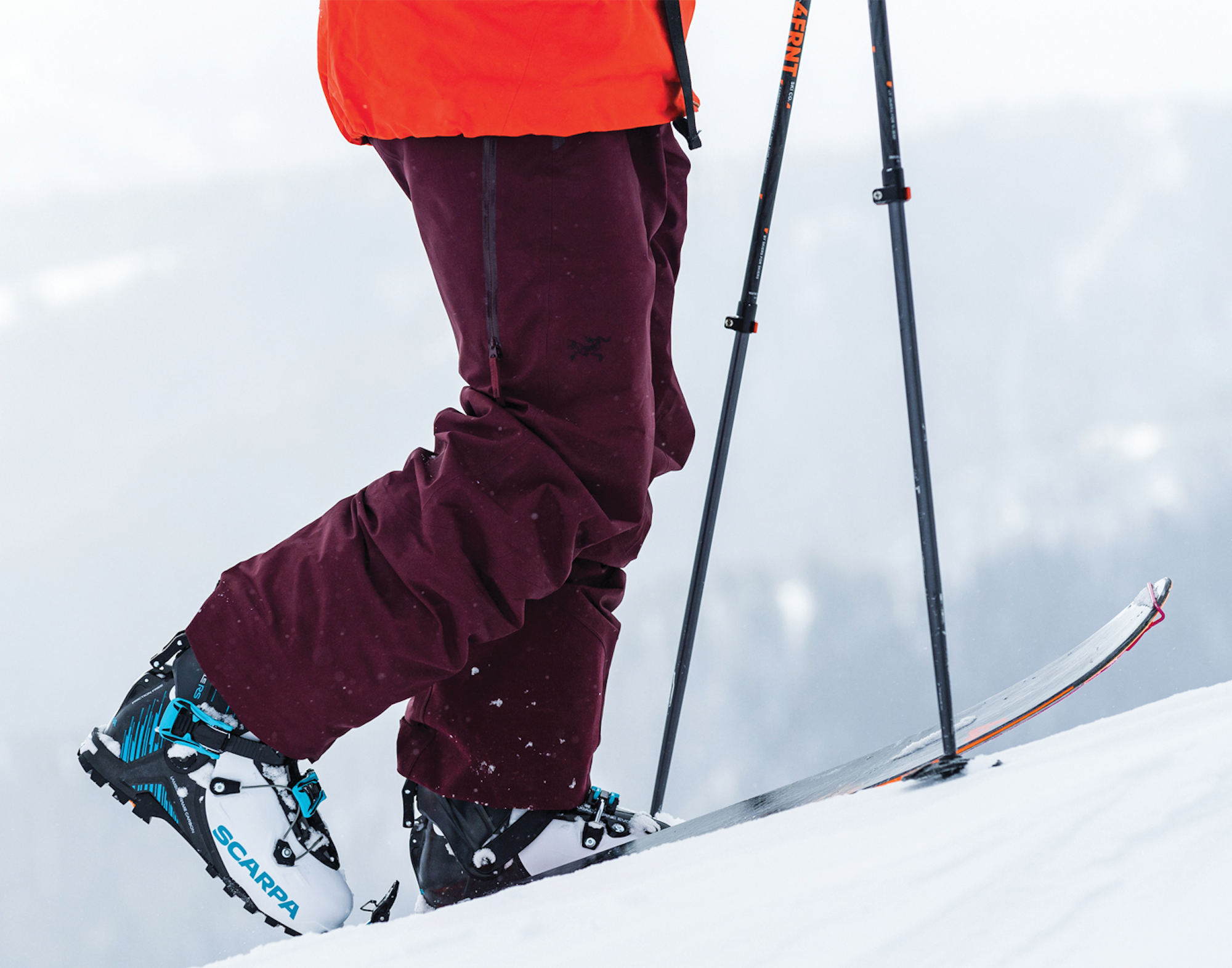
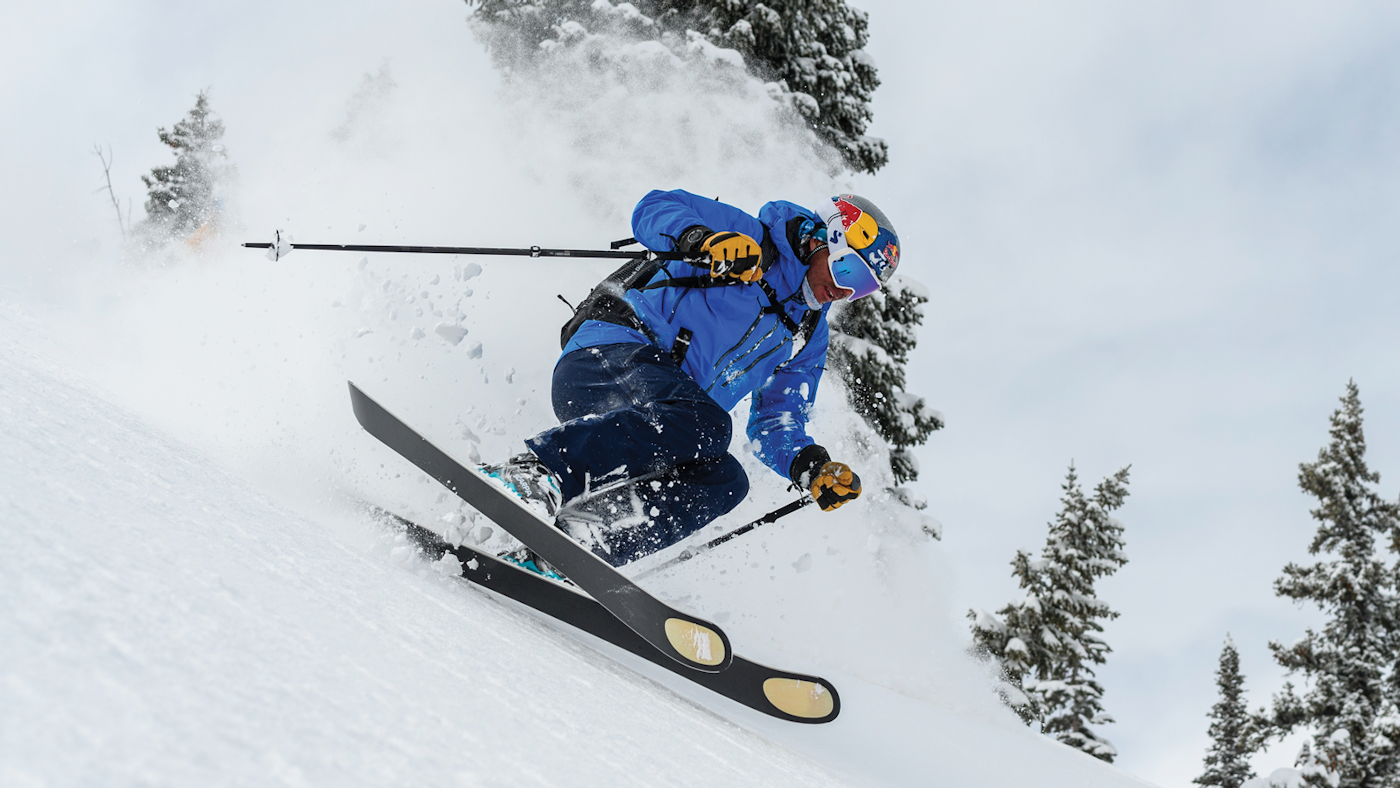
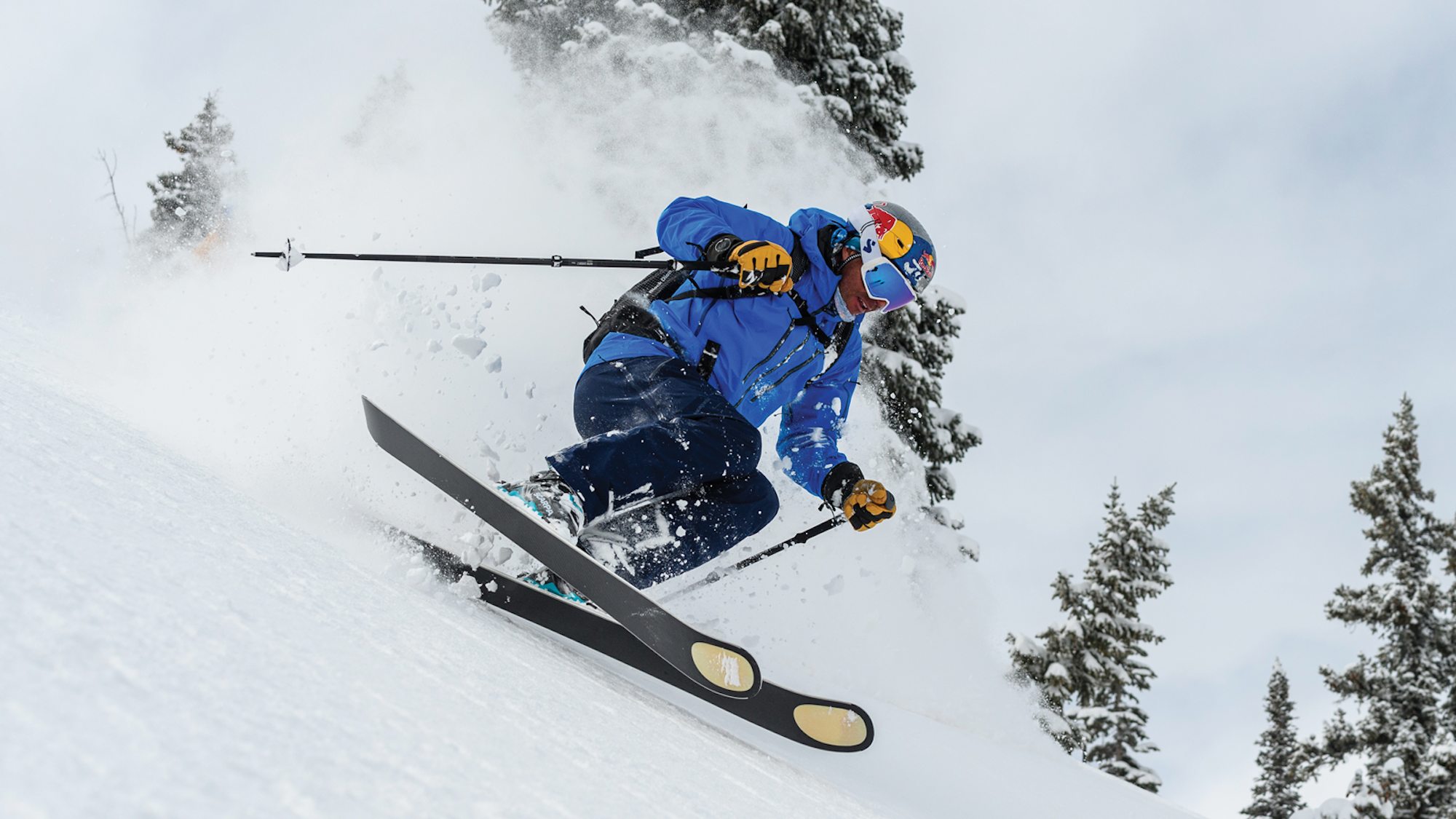
For generations the plastic used in ski boots, and most outdoor gear, has been derived from carbon and petroleum-based products. It’s incredibly counterproductive for the ski industry given our reliance on winter, and the current effects of global climate change. The castor oil, used in Scarpa’s AT boots is sustainably harvested and doesn’t displace any other food crops, nor is a result of deforestation. “It’s a crop that is coming in demand,” says Davenport, highlighting that it has provided jobs to farmers as the industry begins to grow, outside of just producing ski boots.
The production method is fascinating: Castor beans are processed into oil and then into a plastic pellet. Those pellets are then heated and injected into the boot molding machines, and voilà… you have a plant-based ski boot. Well, not quite—while the process of harvesting the material and turning it into a base material is relatively simple, engineering the castor pellets to perform in a ski-related setting is the crux. Fortunately, Scarpa has done extensive research and development to make sure the boots still ski just as good—or better.
The castor oil materials are blended into two types of plastics, Pebax® Rnew and Grilamid® Bio. Davenport explains that the Grilamid® Bio has a stiffer feel and is used mostly in the cuffs while the Pebax® Rnew has more rebound, flex and feel, which makes it ideal for the lower shell. These new plastics, which have been refined into something ski-worthy and approved by the pros, are integrated into the newest line of the Maestrale and Gea boots, on sale now.
“There is zero compromise in terms of the performance,” explains Davenport. “All the testing has shown that the durability is better, too. It feels like an even trade in terms of materials, and the benefit to the planet and supply chain is obvious.”
Perhaps the most feel-good story behind these sustainable efforts is that Scarpa’s innovation isn’t aimed at money. Sure, it’ll likely capitalize on that given the environmental ethos of the boots, but it haven’t trademarked this process in hopes that others will join in the future. Furthermore, the Italian brand has reshaped its entire ethos to focus on sustainability, and plan to donate one dollar for every Maestrale, Gea, Maestrale RS, Gea RS, T1 or T2 Eco sold, to Protect Our Winters.
“The end goal here is [to get] the entire industry and everyone to get on-board,” notes Davenport. Scarpa is hopeful it will spur change and shake up the industry, since its employees’ jobs and the future of recreation depend on it. But the brand’s sustainable and humanitarian efforts don’t stop there, as Davenport explains the company’s equality initiatives in which it’s athletes mentor and provide opportunities to historically marginalized communities. “I’ve been mentoring this great kid in the Roaring Fork Valley—Aidan Goldie—he’s an up-and-coming skier and ultra-runner. The climbing team has been doing the same thing… It’s the right thing to do.”
Based in Asolo, Italy, Scarpa’s 80-years-old headquarters is now powered by solar energy, too, eliminating 320 tons of carbon dioxide emissions per year. Additionally, the company’s production chain utilizes 90 percent of materials created in Europe, with more than half of its production happening in Italy. All of this combines to the company’s pending B Corp certification, one of the most coveted, globally recognized environmental certifications for a business.
“A year from now, we’ll see numerous companies doing this,” says Davenport. “There will be more demand for these products and a bigger market for them, too… If I was a consumer and the shop kid said to me, ‘Here is a new, plant-based AT boot that performs just as good as the others,’ I’d be sold.”

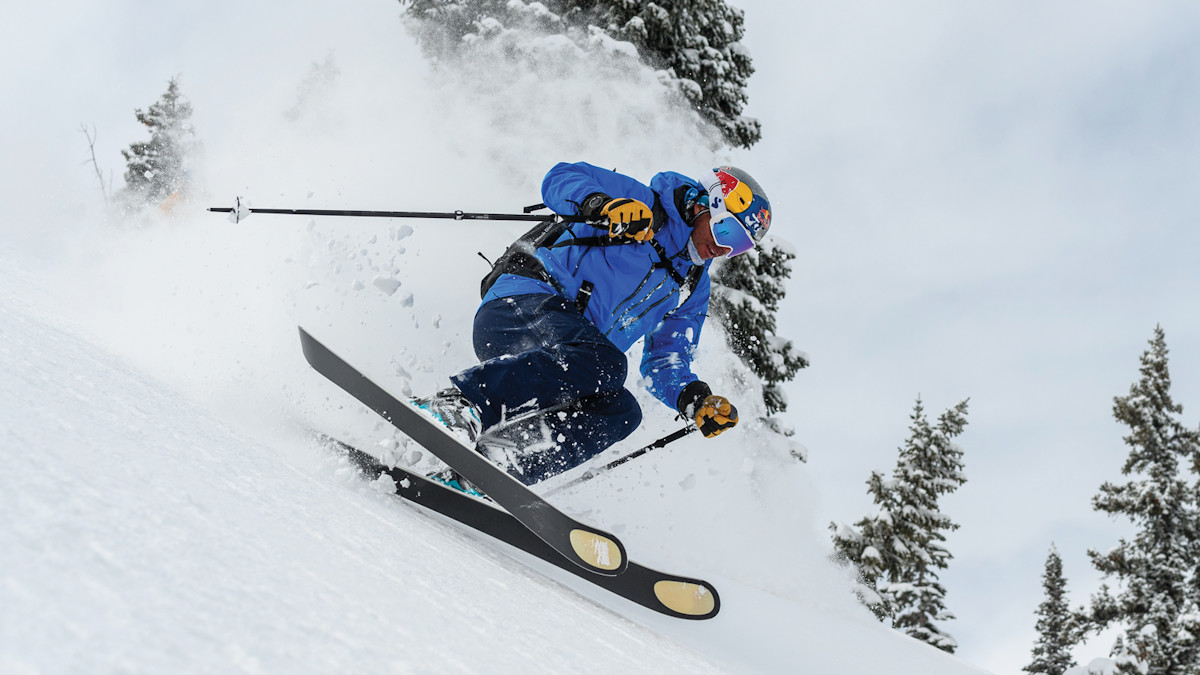
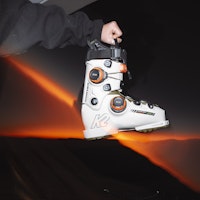


![[FIRST LOOK] New 2027 Skis and Outerwear From Rossignol](https://www.datocms-assets.com/163516/1771280782-2026_fs-firstlook-deck.png?w=200&h=200&fit=crop)




